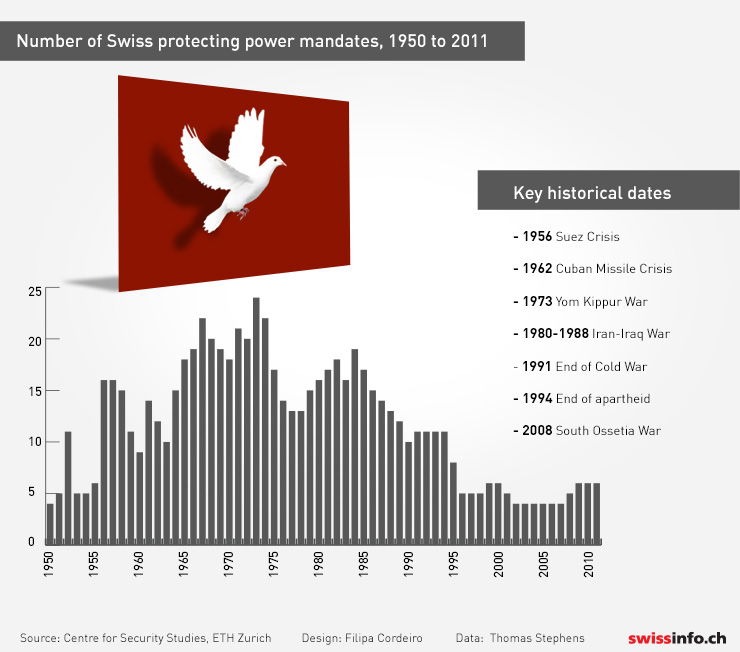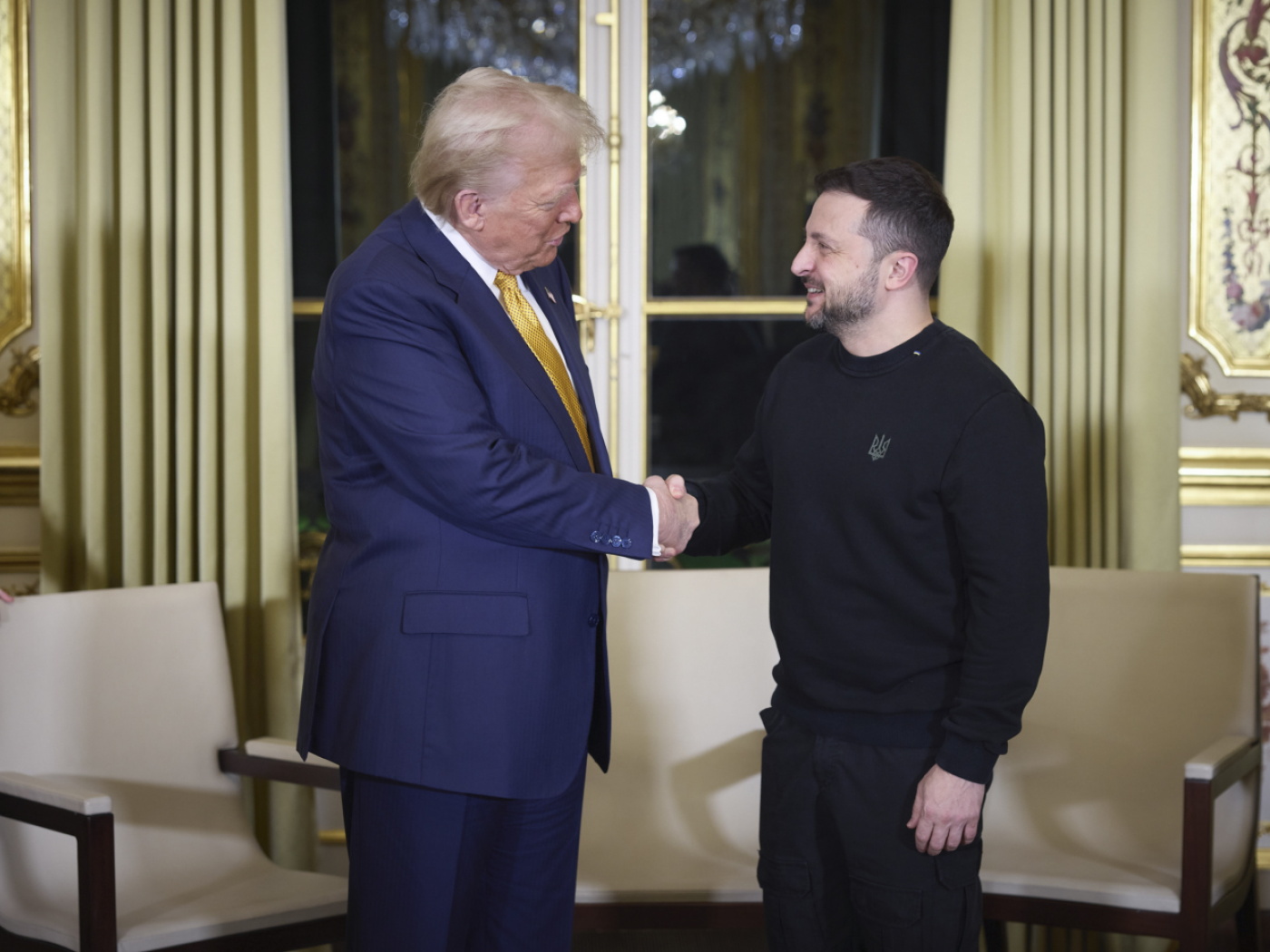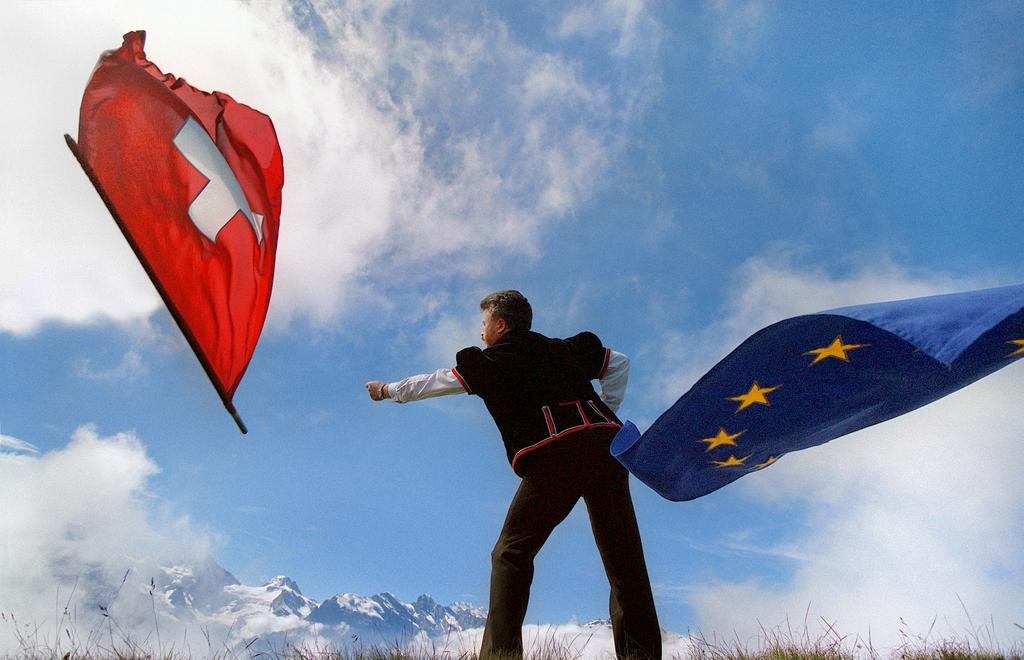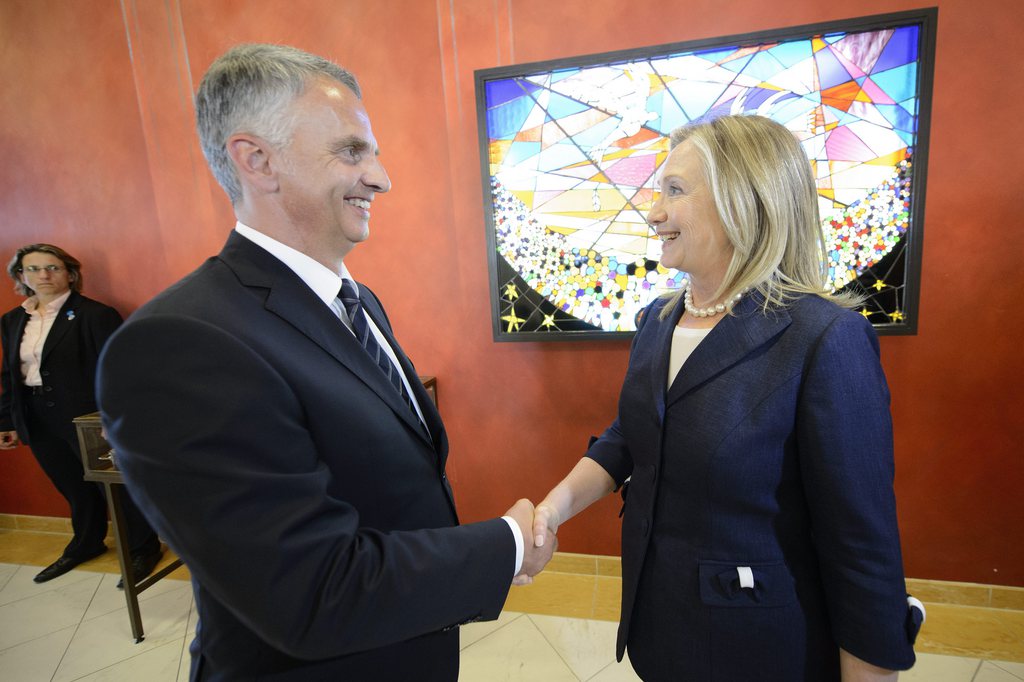Foreign policy
The end of the Cold War world has allowed Switzerland to be more active in its foreign policy, with diplomats known for helping states settle their differences.
Editorial note: this information was current as of June 2017 and is no longer being updated.
Switzerland’s good offices have a long tradition. Together with the country’s protecting power mandates, they play a significant role in Swiss peace policy. The Swiss foreign ministry is keen to play an active role in diplomatic peace processes and contribute to the peaceful settlement of conflicts. In recent years Switzerland has accompanied more than 20 countries in over 30 peace processes. It led its own mediation proceedings, among others, between Armenia and Turkey and between Georgia and Russia. In the past seven years, the foreign ministry has taken part in over 15 peace negotiations. These include: Sudan, Colombia, Nepal, Myanmar, Sri Lanka, Mali and Syria.
Switzerland also remains a venue for international talks, such as recent negotiations over Iran’s nuclear programme and peace efforts to resolve the Syrian crisis.
The Swiss have had their own diplomatic crises, too. The 2008 Geneva arrest of Libyan Leader Moammar Gaddafi’s son, Hannibal, sparked a row that led to Tripoli shutting Swiss businesses in Libya, cutting off flights, and refusing to allow two Swiss managers to leave the country for months. Gaddafi eventually freed one and sent the other to prison (later released). Relations remained cool until Gaddafi’s overthrow.
Please visit the foreign ministry to learn more.

More
Protecting power mandates over the years
Good Offices
Providing “good offices” remains a Swiss foreign policy goal. Switzerland’s good offices include safeguarding foreign interests. After reaching a peak in the Second World War, the country currently exercises six protecting power mandates.
This involves taking on some of a state’s consular and/or diplomatic tasks in the event that it has broken ties with another state in part or full. Protecting power mandates allow states to maintain low-level relations and provide consular protection to nationals of the other state concerned.
Switzerland can either offer to act as a go-between on its own initiative or can fulfill this function at the request of the parties concerned, provided that all those involved agree.
In addition to representing Iranian interests in Egypt (since 1979), Switzerland has been representing US interests in Iran since 1980. In mid-February 2016 Switzerland agreed to act as protecting power for both Iran and Saudi Arabia. Switzerland represents Iran’s interests in Saudi Arabia and Saudi Arabia’s interests in Iran.
Switzerland has been acting as protecting power for Russia in Georgia since the end of 2008 and for Georgia in Russia since the beginning of 2009. Switzerland also represented US interests in Cuba from 1961 and Cuban interests in the US from 1991. This mandate ended in July 2015 for both countries, when they resumed diplomatic relations..
Other foreign policy aims are safeguarding Swiss economic interests, the worldwide promotion of human rights and good governance, and protection of the environment and natural resources.
The most visible efforts are Swiss development aid projectsExternal link, which are generally focused on the poorest nations, and are based on self-help.
Switzerland and the EU
Switzerland is not a member of the European Union. It is a member of the Schengen AreaExternal link, however, a European bloc with streamlined border controls and one common visa.
In 1992 Swiss voters narrowly turned down the European Economic Area (EEA) or single market. The three other members of the European Free Trade Association (EFTA) – Iceland, Liechtenstein and Norway – did choose to join the EEA, although EFTA still exists.
In June 2016 parliament voted to formally withdraw Switzerland’s application to join the EU that had been lying dormant since 1992. Under the Swiss system of direct democracy, an actual application to join the EU would entail a nationwide vote, and a majority of voters and cantons in favour of joining.
The lukewarm attitude to the EU is based on a number of factors. The union is perceived as falling short in democratic institutions. Switzerland’s frequently used system of initiatives and referenda would need drastic reform and curtailment to comply with EU rules. There is also a concern about the cost: Switzerland would be a net contributor to the EU coffers, and there are doubts about whether neutrality would be compatible with EU membership.
The pragmatic response of the Swiss government since 1992 has been to engage in talks with the EU on more than 20 major bilateral accords.
But these accords were thrown into doubt when Switzerland voted in favour of an initiative to limit the influx of immigrants in February 2014. The EU said this violated the accord governing the free movement of workers between EU states, to which Switzerland is a signatory.
Switzerland has been waiting to hold difficult negotiations with Brussels over immigration quotas and bilateral treaties. EU officials had decided to postpone those talks until the results of the British referendum vote to leave the EU. The Swiss cabinet had until February 2017 to find a solution to the issue of EU immigration that respects the people’s wishes and is also acceptable to the EU. In December 2016, parliament found a compromise by deciding to change the law to prioritise Swiss workers instead of fixing quotas on workers from the EU. However, the law cannot be modified yet as citizens will likely be voting on an initiative demanding the reversal of EU immigration quotas.
Switzerland is also a member of the stabilisation pact for south-eastern Europe, and has contributed more than CHF1 billion to benefit the new member countries from eastern Europe.
To ensure Switzerland does not suffer discrimination as a non-member, Swiss legislation in many fields, including trade, has been brought into line with that of the EU. But the clearest indication of how matters are on hold is that EU membership no longer figures as a government goal – membership is now termed “an option”.

In compliance with the JTI standards
More: SWI swissinfo.ch certified by the Journalism Trust Initiative













You can find an overview of ongoing debates with our journalists here . Please join us!
If you want to start a conversation about a topic raised in this article or want to report factual errors, email us at english@swissinfo.ch.